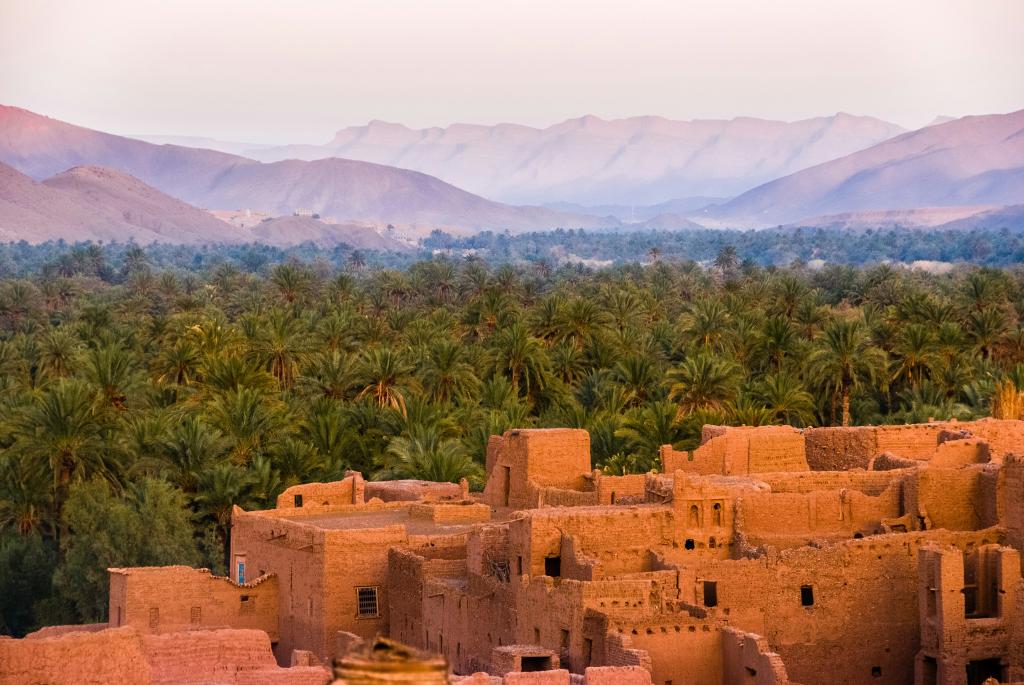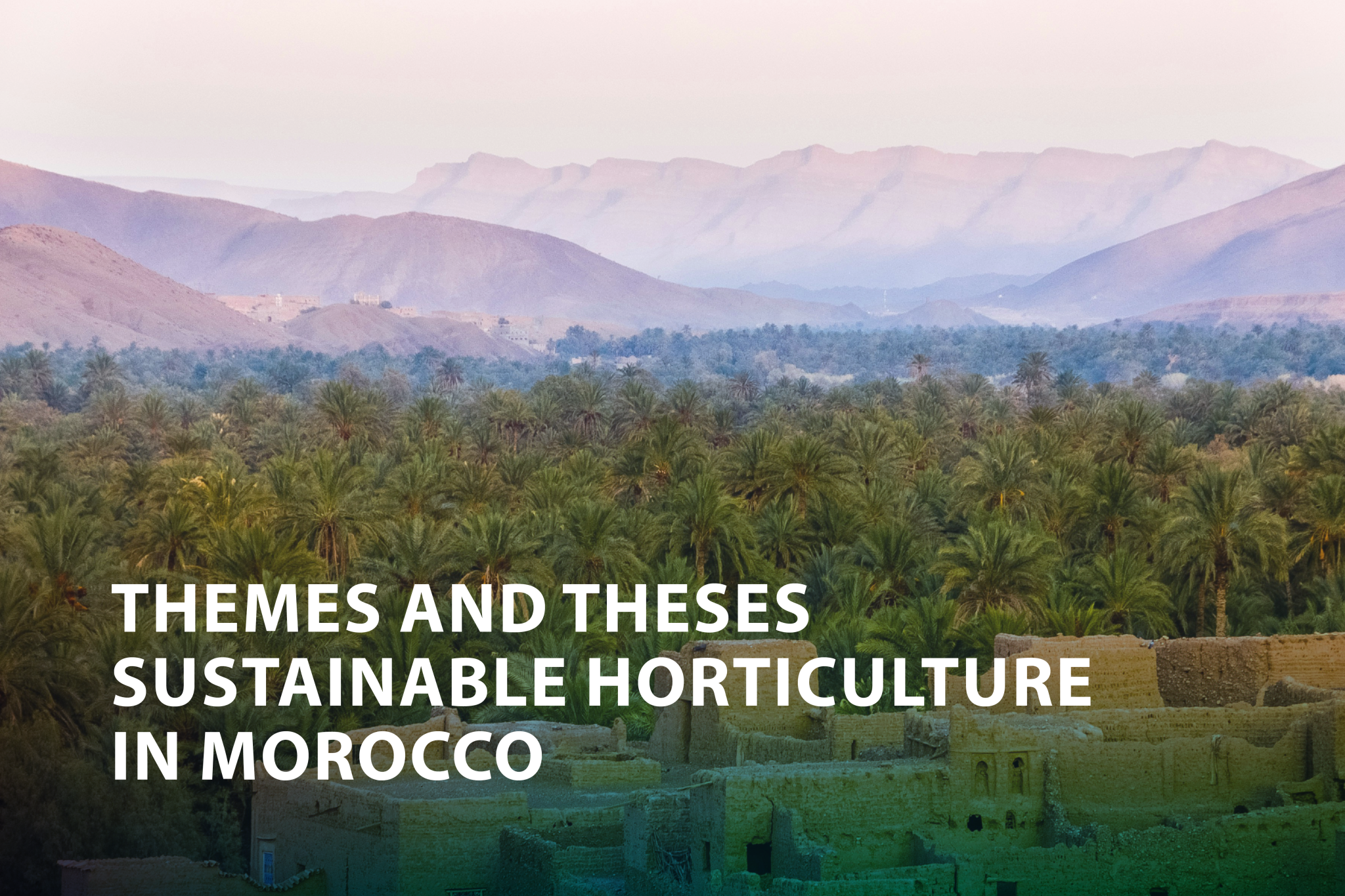
The Moroccan region of Rabat-Sale-Kenitra has the potential to become a semi-arid hotspot of horticultural productivity, with an open business ecosystem, empowering entrepreneurship. Creating the associate governance while dealing with the omnipresent challenge of limited water availability is a major challenge to achieving this ambition. This is a small-scale lab with six sessions, including an excursion to Rabat, Morocco.
Themes and Theses
Morocco has a strong vision and ambitious targets for developing its horticulture and agriculture to an export market like Europe. To achieve this, important hurdles will have to be taken and some big steps in terms of education, governance, and innovation are being taken. The Dutch greenhouse industry has been involved for a long period of time in facilitating some of these developments. The main question is now how to implement a sustainable and economically viable horticulture section, and what does such a sector look like. For this Thesis Lab we define four challenges, which we invite students to apply for:
(1) Water availability - The first and possibly largest hurdle is the limited water availability, crucial to increased productivity. While all partners are aware of this constraint, the availability of area-specific information is highly limited and scenario analyses on the topic are few. Important topics to be addressed in this thesis lab are therefore to create a better quantitative understanding of water availability and its prospected changes in the future for different scenarios of horticulture development, urbanization, and climate change.
(2) Sustainable cultivation - A related challenge to (1) is to come up with sustainable cultivation technologies, particularly for strawberries and berries, that demand less water. These need to realistically be applied in the Rabat region, taking into account the level of technology available (connected to challenge 4).
(3) Governance and value chain integration - A third challenge relates to the governance of the value chain as a whole and its functioning. Specific challenges involve the implementation of a triple helix cluster fit to the local context (a collaboration between universities, industry, and government), and a business ecosystem with representatives from throughout the value chain.
(4) Technological upgrading in horticulture - Related to the first and second challenges, the fourth challenge involves the upgrading of current low-tech systems to mid-tech technologies, and how to achieve those while accounting for the major differences between the (big majority) of smallholders vs. the big companies who produce for the export market.
In this thesis lab we aim to work on these challenges together with our Moroccan partners.
Read all Themes and Thesis topics
PROGRAM 2024/2025
The lab program of this small-scale Thesis Lab consists of six sessions, including an excursion to Morocco between May 8 and May 19 (= preliminary dates). During this excursion you will visit the Rabat-Sale-Kenitra region. The aim of the excursion is to get a good overview of the situation in Morocco and the sustainability and horticulture challenges. You will experience the real-life setting, possibilities and limitations. You will meet partner organisations and students in Morocco, get inspired and get a chance to collect data for your thesis
Costs excursion:
- We ask you to pay your own flight tickets to Morocco (on May 8 we will start in Rabat and on May 19 we will be in Rabat).
- All other costs of travel, accommodation and meals in Morocco are covered.
- You can check for yourself if you qualify for a subsidy to cover (a part of) the costs, for instance via Fonds op naam, Students4Sustainability, Universiteitsfonds TU Delft or via another organisation
This Thesis Lab will have a maximum of 4-6 students.
CASE HOLDERS
In a collaboration between several Moroccan universities, Credit Agricole Maroc, the Moroccan research institute INRA, Leiden-Delft-Erasmus and multiple Dutch multinationals active in horticulture, preparations are made to create a so-called impact cluster for transitioning the Moroccan horticulture sector towards high-productive sustainability. This thesis lab will support and enrich these preparations.
ENROLMENT
Conditions for enrolment you'll find here.
Enrolment for the academic year 2024-2025 is closed!
INSPIRATION AND RESULTS
Get inspired and check the results of previous labs.

